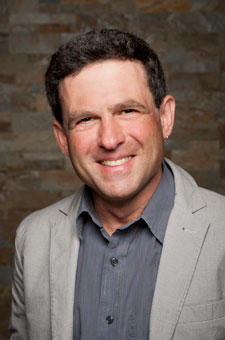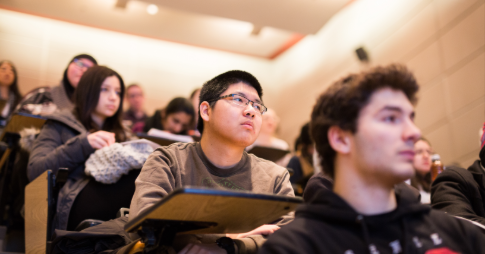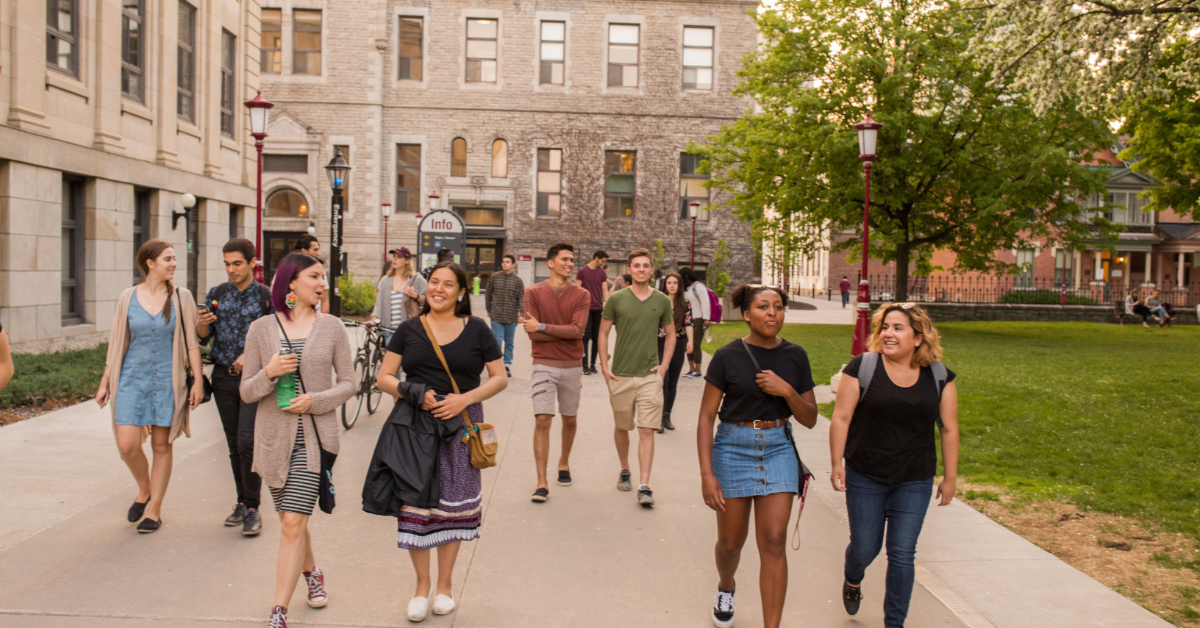


When young people see vast disparities separating individuals in society and the opportunities available to them, their frustration can pose a fundamental challenge to the institutions of democratic government.
If they do not know how to participate in these institutions in ways that solve these problems, they will simply invest their interest and energy elsewhere. That can also mean these governing structures begin to function with little public attention or oversight, leading them to evolve in unexpected and dangerous ways. This was how Germany democratically elected a Nazi government that turned into one of the most repressive and destructive regimes of all time.
That disaster may belong to a different century, but its implications remain very much with Joel Westheimer, a professor in the Faculty of Education. His 2015 book, What Kind of Citizen?, begins with an image of himself and his mother standing on the same Frankfurt station platform where in 1938 she had boarded a train to safety in Switzerland to become the only member of her family who would survive the ensuing war. As personal as this tragedy may be, he also regards it as an enduring failure of democracy and a pointed reminder of how perceptions of inequality can undermine a system that is supposed to offer people the same status in the eyes of law and government.
Westheimer has spent much of his academic career exploring the role that education plays in the success of democratic government. This concept was celebrated by the leaders of the American revolution, who saw its success as being dependent on citizens knowledgeable enough to manage their own affairs.
“A school’s job is not to tell kids to think one way or another, but to teach kids their responsibility to engage and learn enough about issues that they can make decisions to improve their lives and other people’s lives,”
The need for this responsibility mounts, he adds, when it comes to dealing with inequality in society.
“Kids need an understanding of controversy, so that they can meet the challenge of engaging with multiple perspectives on an issue, says Westheimer. “They also need to see that well meaning, caring, intelligent adults can differ on matters of immense social importance, and above all, that this disagreement is a good thing.”
He regarded the topic as important enough to warrant a major study, which became The Inequality Project. This initiative got under way in 2013, when he teamed up with John Rogers, who directs the Institute for Democracy, Education, and Access at the University of California, Los Angeles. Since then they have been reviewing curricula for all Canadian provinces and American states, as well as surveying some 5,000 teachers and subsequently interviewing hundreds more. Most recently they have also begun looking at practices in Mexico, where public education is rapidly progressing. In each case the researchers have focused on teaching in social studies, English, and mathematics, looking at how the many different aspects of inequality are raised in classrooms around North America, if in fact they are raised at all.
“What’s amazing is the extent — which really surprised us — how much teachers report teaching about economic inequality,” observes Westheimer. “Economic inequality is a big issue, and it’s not the only issue, but it’s such a big issue that we felt that we needed to look at this important current, a contemporary case of how teachers manage the topic in schools, what we’re doing right and wrong. ”
Their analysis yielded even more surprises, such as the significant role of a teachers’ levels of civic engagement, as opposed to their particular political orientation.
“This does not gainsay the obvious distinctions between liberal and conservative outlooks,” he acknowledges. “However a teacher’s ideological background has little to do with how much they talk about economic inequality.”
And while it might seem natural to discuss such matters in an English class, where students may be reviewing a book that dwells on themes of inequality, Westheimer emphasizes that even the more abstract, technical content of math class lends itself to similar discussions and debates. He cites the ongoing impact of efforts like the Algebra Project [https://algebra.org/wp/], a mathematical literacy campaign launched in the early 1980s by American civil rights activist and math teacher Robert Moses with the goal of overcoming social and economic inequality by equipping students with the numeracy skills they need to advance their educational and career prospects.
“People want to know the social relevance of what they’re learning,” says Westheimer. “That doesn’t mean making a direct connection each time, but in the big picture you want the learning to be meaningful. Our findings were that there a lot of teachers concerned with the social relevance of their work, and that spans social studies, English, and math.”
This insight left him optimistic about the future of education with respect to democracy. And he hears the enthusiasm voiced by these teachers being echoed in the policies of many governments around the world, which are eager to strengthen their respective democratic institutions. Nevertheless, he cannot resist sounding his own cautionary note about the impact of other educational trends.
“Even though there are many teachers doing great work on this, school is still way too focused on technocratic and job-training skills, rather than preparing kids to live in a democratic society,” concludes Westheimer. “Our findings are inconsistent with this myopic focus on standardization and testing in schools.”
More specifically, those findings included the fact that curricula in far too many jurisdictions offer little more than a dreary, superficial introduction to the role of citizens and their government. He describes the result as “death by civics”, an experience devoid of any relevance to real issues that might be confronted by young people — so much so that without a teacher’s dedication to breathing life into this field, students are likely to wind up less interested in it than they were before. That outcome becomes even less welcome in the context of social, economic, and technological upheaval.
“People are reporting a greater sense of alienation and lack of meaning in their lives, including a lot of issues with social media,” concludes Westheimer. “People also want to be involved in meaningful, collective work and that’s just what we were looking at: the extent to which teachers can create what are called civic learning opportunities, giving kids an experience of collective work on something that matters. That’s what people are starved for now.”
